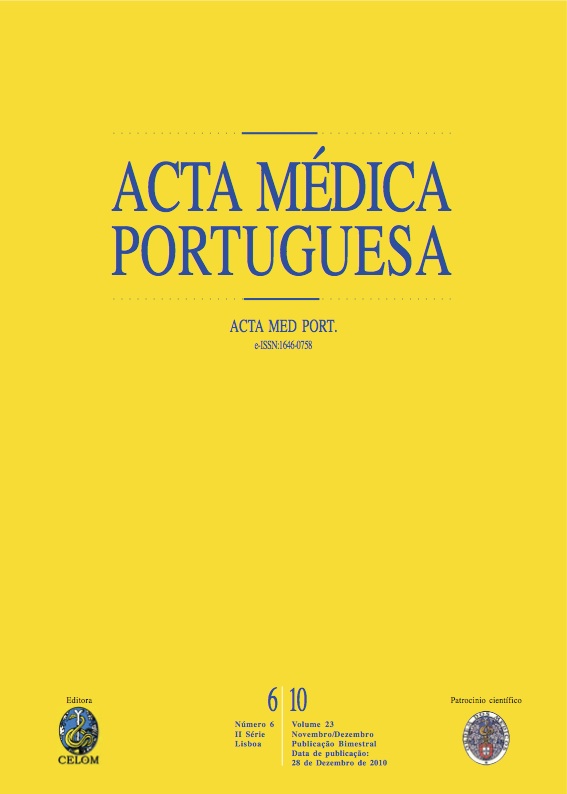Características de alcoólicos à adesão prolongada num programa ambulatório.
DOI:
https://doi.org/10.20344/amp.753Resumo
Low adherence rates are frequently found in alcoholics' treatment programs. Many characteristics of alcoholics have already been associated to longer adherence or to higher drop-out rates. Adherence is an outcome already pointed as a simple and practical measure to evaluate treatment results. This study aimed to identify characteristics of alcoholics of a public outpatient treatment program associated to superior adherence, i.e., to longer permanence periods in treatment.This study included 634 alcoholics; from these, 329 concluded the program's assessment stage and 305 did not conclude or fulfill the program's exclusion criteria. Initially, we analyzed socio-demographic differences between patients who completed or did not complete assessment. Crosstabs were performed to verify the association of all other 814 variables in the data bank to adherence to treatment. Logistic regression of variables found at least marginally significant was the performed: first within each dimension involved, contributing to the selection of variables for the multidimensional model. Pearson's Qui-square test was used to verify possible associations.Only two variables significantly differed patients who completed and did not complete assessment: place of birth and mean age. In bivariate analysis, 65 variables were associated to adherence; however, only five remained significant (p < 0.05) after logistic regression. In the final model, variables significantly associated to adherence were: did not eat while drinking; evaluated as having high insight level; (presented DSM-IV criterion 6 for Dependence (important social, occupational, or recreational activities are given up or reduced because of substance use); when increased consumption, drank to relieve chronic malaise; abdominal pain in the last 30 days before evaluation.The results of this study indicate that, differently from preliminary conclusions, the therapeutic standard used in the program evaluated--namely its focus on the approach of psychiatric comorbidity--did not remain as one of the most relevant factors associated to longer adherence to treatment. Therefore, the results support the need of new studies directed to the assessment of these subgroups that more quickly dropped-out of the treatment routinely offered, in order that diagnose and treatment approaches may be altered in order to become more efficient and effective to its clients.Downloads
Downloads
Como Citar
Edição
Secção
Licença
Todos os artigos publicados na AMP são de acesso aberto e cumprem os requisitos das agências de financiamento ou instituições académicas. Relativamente à utilização por terceiros a AMP rege-se pelos termos da licença Creative Commons ‘Atribuição – Uso Não-Comercial – (CC-BY-NC)’.
É da responsabilidade do autor obter permissão para reproduzir figuras, tabelas, etc., de outras publicações. Após a aceitação de um artigo, os autores serão convidados a preencher uma “Declaração de Responsabilidade Autoral e Partilha de Direitos de Autor “(http://www.actamedicaportuguesa.com/info/AMP-NormasPublicacao.pdf) e a “Declaração de Potenciais Conflitos de Interesse” (http://www.icmje.org/conflicts-of-interest) do ICMJE. Será enviado um e-mail ao autor correspondente, confirmando a receção do manuscrito.
Após a publicação, os autores ficam autorizados a disponibilizar os seus artigos em repositórios das suas instituições de origem, desde que mencionem sempre onde foram publicados e de acordo com a licença Creative Commons









